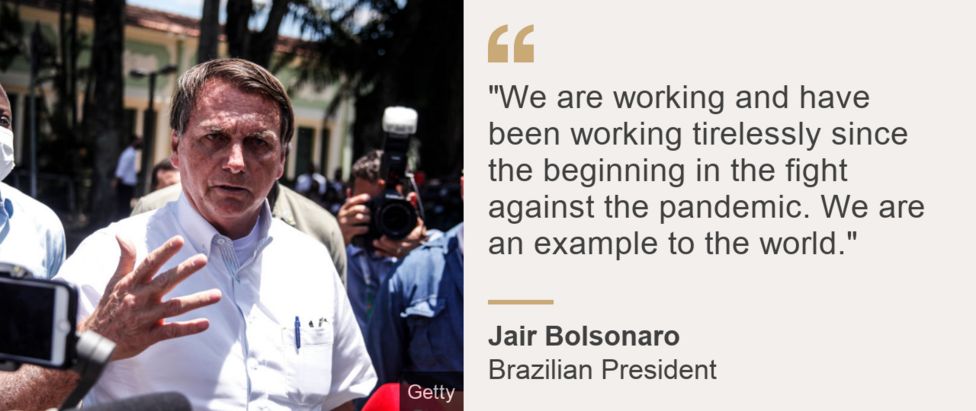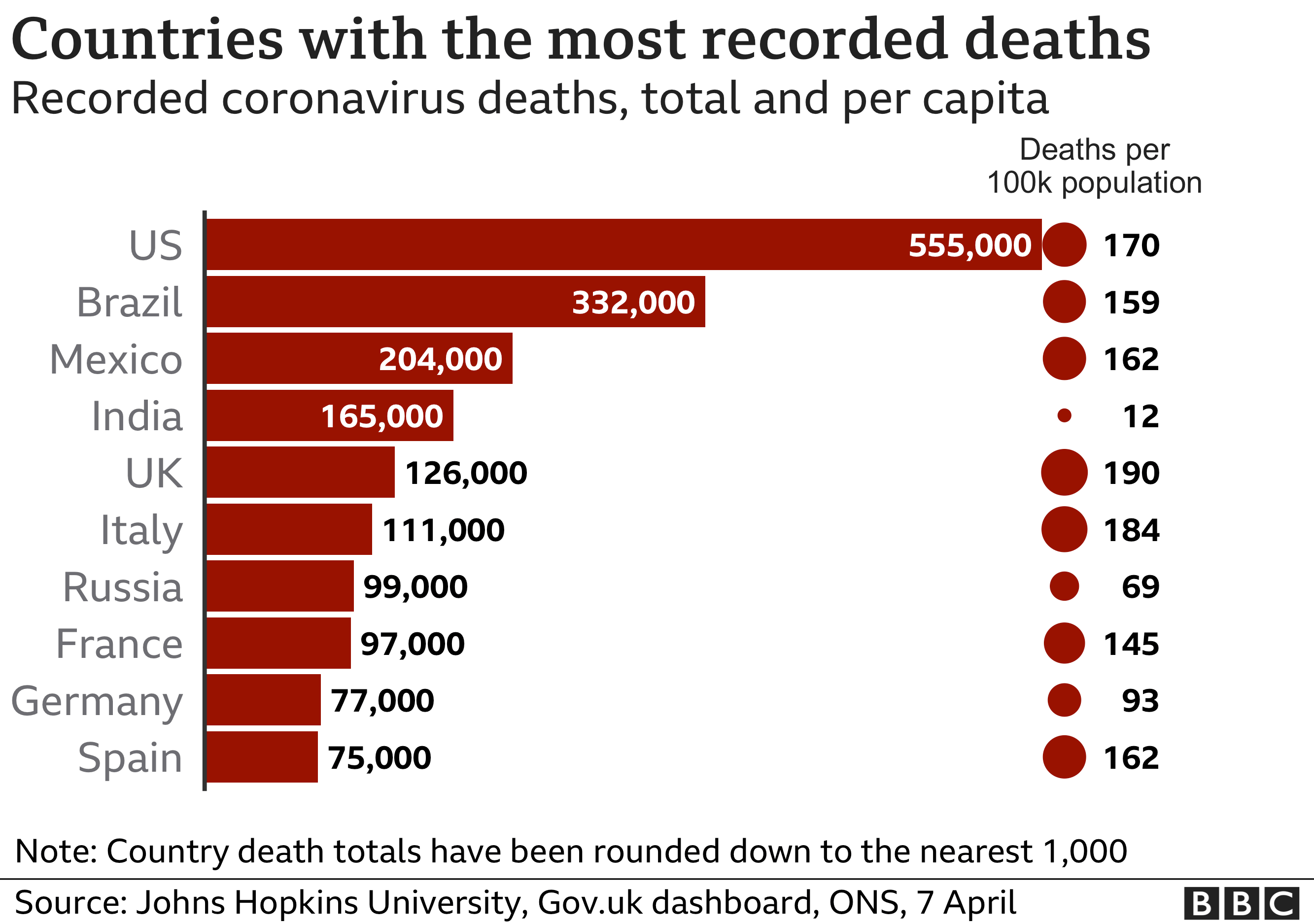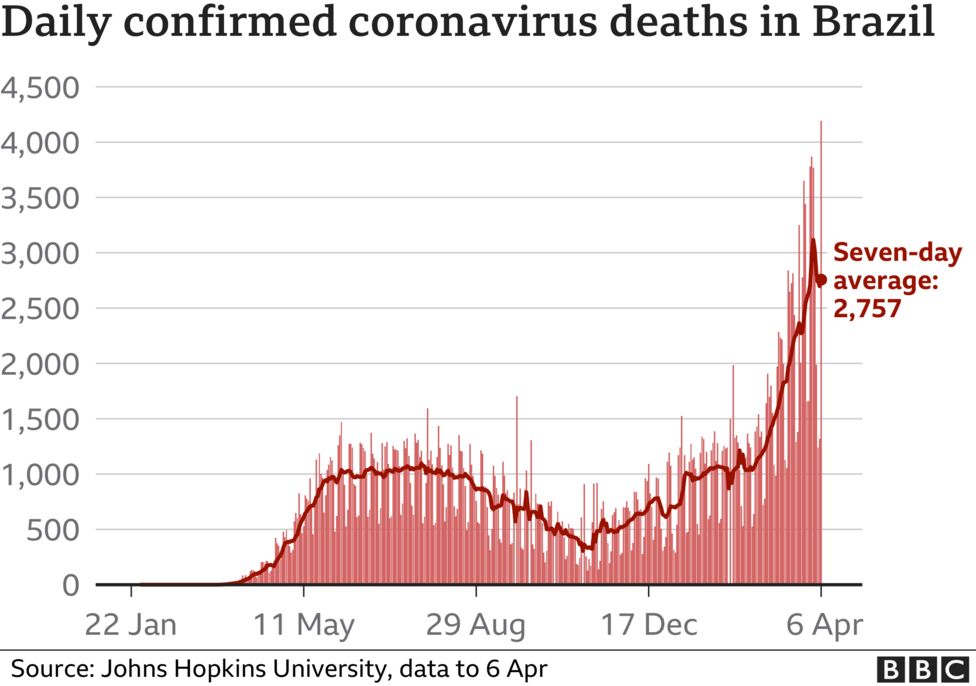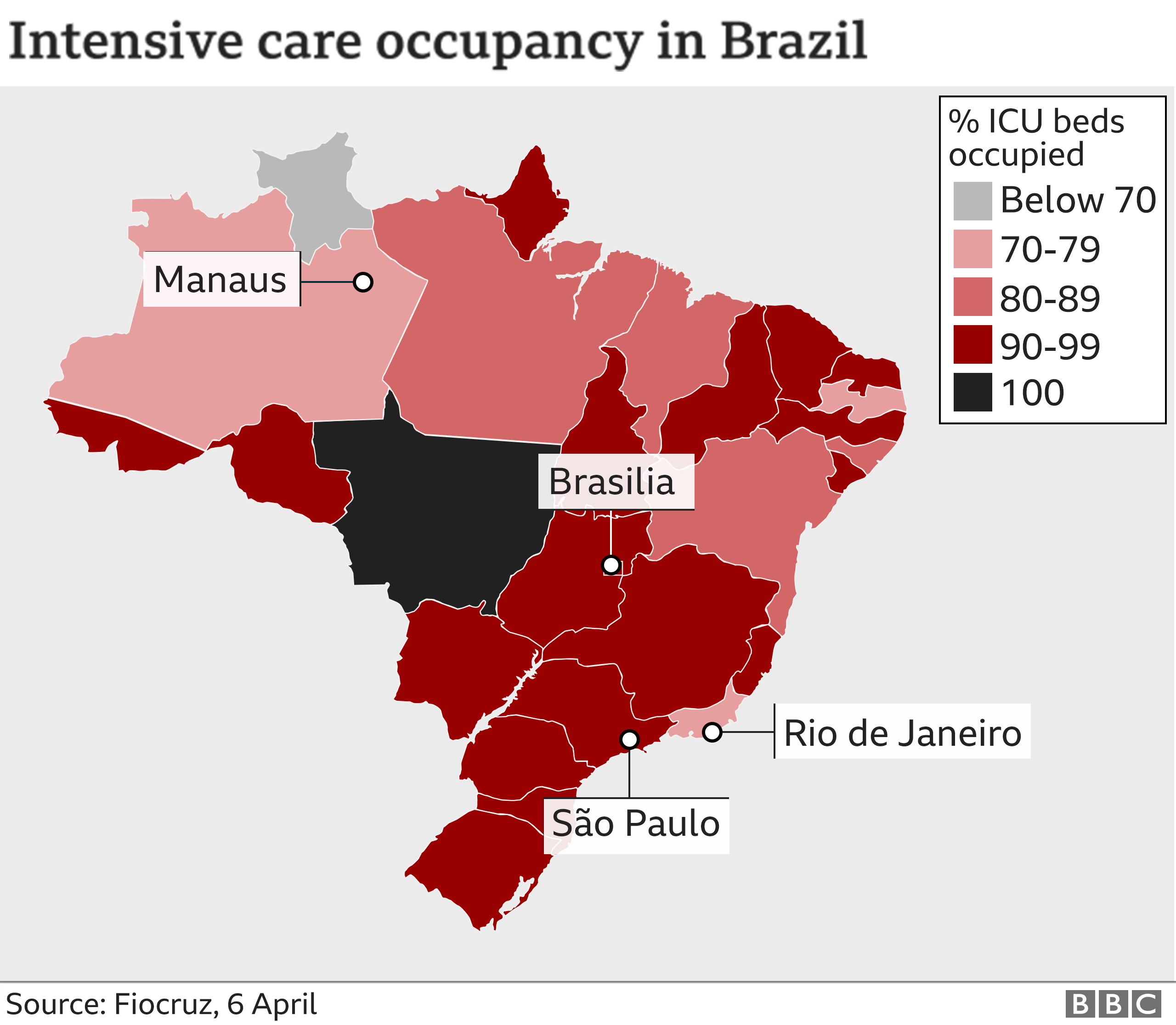Brazil has become South America’s superspreader event
By Lucien Chauvin, Anthony Faiola and Terrence McCoy
April 5, 2021 at 6:00 p.m. GMT+8
LIMA, Peru — With a sense of dread, the doctor watched the patients stream into his intensive care unit.
For weeks, César Salomé, a physician in Lima’s Hospital Mongrut, had followed the chilling reports. A new coronavirus variant, spawned in the Amazon rainforest, had stormed Brazil and driven its health system to the brink of collapse. Now his patients, too, were arriving far sicker, their lungs saturated with disease, and they were dying within days. Even the young and healthy didn’t appear protected.
The new variant, he realized, was here.
“We used to have more time,” Salomé said. “Now, we have patients who come in and in a few days they’ve lost the use of their lungs.”
The P.1 variant, which packs a suite of mutations that make it more transmissible and potentially more dangerous, is no longer just Brazil’s problem. It’s South America’s problem — and the world’s.
In recent weeks, it has been carried across rivers and over borders, evading restrictive measures meant to curb its advance across the continent. There is mounting anxiety in parts of South America that P.1 could quickly become the dominant variant, transporting Brazil’s humanitarian disaster — patients languishing without care, a skyrocketing death toll — into their countries.
“It’s spreading,” said Julio Castro, a Venezuelan infectious-disease expert. “It’s impossible to stop.”
In Lima, scientists have detected the variant in 40 percent of coronavirus cases. In Uruguay, it’s been found in 30 percent. In Paraguay, officials say half of cases at the border with Brazil are P.1. Other South American countries — Colombia, Argentina, Venezuela, Chile — have discovered it in their territories. Limitations in genomic sequencing have made it difficult to know the true breadth of the variant’s spread, but it has been identified in more than two dozen countries, from Japan to the United States.
Hospital systems across South America are being pushed to their limits. Uruguay, one of South America’s wealthiest nations and a success story early in the pandemic, is barreling toward a medical system failure. Health officials say Peru is on the precipice, with only 84 intensive care beds left at the end of March. The intensive care system in Paraguay, roiled by protests last month over medical shortcomings, has run out of hospital beds.
“Paraguay has little chance of stopping the spread of the P.1 variant,” said Elena Candia Florentín, president of the Paraguayan Society of Infectious Diseases.
“With the medical system collapsed, medications and supplies chronically depleted, early detection deficient, contact tracing nonexistent, waiting patients begging for treatment on social media, insufficient vaccinations for health workers, and uncertainty over when general and vulnerable populations will be vaccinated, the outlook in Paraguay is dark,” she said.
How P.1 spread across the region is a distinctly South American story. Nearly every country on the continent shares a land border with Brazil. People converge on border towns, where passing into another country can be as simple as crossing the street. Limited surveillance and border security have made the region a paradise for smugglers. But they have also made it nearly impossible to control the variant’s spread.
“We share 1,000 kilometers of dry border with Brazil, the biggest factory of variants in the world and the epicenter of the crisis,” said Gonzalo Moratorio, a Uruguayan molecular virologist tracking the variant’s growth. “And now it’s not just one country.”
..........
Read the rest in the related link
Covid-19: Why have deaths soared in Brazil?
By Jake Horton
BBC Reality Check
Published Apr 9, 2021
Brazil has the second highest death toll in the world from Covid, and experts are warning that a current surge in cases may not peak for several weeks.
The rapid spread of a coronavirus variant first discovered in Brazil has been a major cause for concern around the world.
President Jair Bolsonaro has consistently played down the severity of the virus, but he is now turning his focus to the nationwide vaccination drive which his critics say has come far too late.
What has Bolsonaro said about Covid?
The president has been highly sceptical about the need to take decisive action to tackle the pandemic:
- he has called Covid "just a little flu"
- rejected a nationwide lockdown, saying such measures only made the poor poorer
- called state governors and mayors who imposed lockdown "tyrants"
- cast doubts on the efficacy and safety of jabs and said he wouldn't get vaccinated
- joked the Pfizer jab may "turn people into crocodiles"
- dismissed opportunities to purchase millions of vaccine doses
- told people to "stop whining" about the situation
He continues to oppose lockdowns, but his government has now stepped up its drive to vaccinate the country's population of more than 200 million people.

So how does Brazil's record compare with the rest of Latin America and the world?
One in four global deaths
Brazil has by far the highest overall death toll in Latin America.
In recent weeks, it has accounted for around one in four of reported Covid deaths worldwide.

It remains behind Peru and Mexico as a proportion of overall population, but daily deaths are rising rapidly in Brazil.
Twice the number of people died in March than in any other month of the pandemic, and the upward trend has continued, as a more transmissible variant drives infections.

A recent estimate from the University of Washington predicted that Brazil could see a total of more than 500,000 deaths by July.
Regional leaders say mixed messaging and a resistance to lockdowns at the national level have made local restrictions harder to enforce.
Hospital intensive care beds in many states across the country are full or close to capacity.

Dr Miguel Nicolelis, a Brazilian professor of neuroscience at Duke University, told the BBC: "The country is in a nationwide hospital collapse right now - it's the first time in history the public health system has collapsed.
"If we can acquire the vaccine in large quantities, we could at least mitigate the situation."
.........
Read the rest in the related link